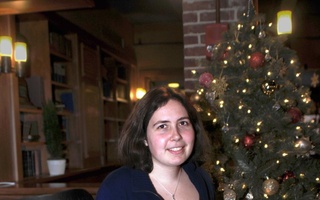The February 2012 killing of Trayvon Martin sparked a nationwide discussion on race relations, one that was echoed across the Harvard community.
In response to demand for continued conversation on the topic, the Harvard Foundation for Intercultural and Race Relations organized a series of panels on race and justice that Foundation director S. Allen Counter intends to bring to all the Houses.
Since 1981, the Foundation has served to unite students of diverse racial, ethnic, and cultural backgrounds in programs and initiatives that promote interracial and intercultural awareness.
In the past three decades, as the Harvard community has diversified, the Foundation has stepped up its role in supporting the activities and collaboration of student organizations, transforming the way that it influences cultural dialogue on campus.
WHY IT HAS CHANGED
While the Foundation was originally conceptualized as a solution to racial tensions at Harvard, the level of student mobilization on issues of race and cultural relations has increased since the its inception.
According to Counter, in the 1970s, Harvard began to admit minority students in significant numbers for the first time.
“Many students felt that they were in Harvard but not of Harvard,” Counter said.
At the time, there was much talk about the idea of a “Third World Center” to provide social and academic support for minority students, according to neuroscience professor John E. Dowling ’57, who has been a member of the Foundation’s faculty advisory committee since its inception. However, then-University President Derek C. Bok and the committee thought that a Third World Center would not have adequately addressed all of the issues present on a campus with a wide range of cultural groups and affiliations.
“They wanted to create something uniquely Harvard,” Counter said.
Bok organized a committee of faculty and students led by Reverend Peter J. Gomes to review proposals and efforts at other universities to foster race relations and promote identity for minority students. They aimed to create the best model for an institution that would respond to intercultural and race relations at the University—what would become the Harvard Foundation.
Bok and Gomes approached Counter to lead an umbrella organization for the multiplicity of student groups that sought a more prominent voice on campus.
Counter, who said he grew up in racially segregated Florida, traveled around the world for his studies. According to Counter, Bok and Gomes told him that his global experience made him a suitable candidate to direct the nascent organization.
In 1981, the University launched the Foundation as a center for students of all backgrounds.
As the Foundation has expanded its activities over the past 30 years, students have also formed their own organizations to address cultural and race relations on campus.
Read more in College News
Faculty Members Say Grade Distribution is Not a Big ConcernRecommended Articles
-
 P. Kenzie Bok
P. Kenzie Bok -
FAS Focuses on Teaching and Learning InitiativeWith a stronger financial outlook for FAS, Dean Michael D. Smith says he can now focus on promoting his “teaching and learning” initiative.
-
Bok Center Equips TFs With Classroom ToolsFor undergraduate students, the role of the teaching fellow is an important fixture of their pedagogy. And for graduate students, teaching in a classroom is a central component of their own curriculum.
-
 Giving Out Free Money Is a Crime?
Giving Out Free Money Is a Crime? -
Lue Named First Faculty Director of the Bok CenterBiology professor of practice Robert A. Lue was named the first Faculty Director of the Derek Bok Center for Teaching and Learning Thursday, a sign of the Faculty of Arts and Sciences’ increased emphasis on innovative teaching, both in person and online.
-
 Jack Reardon To Leave Harvard Alumni Association
Jack Reardon To Leave Harvard Alumni Association













